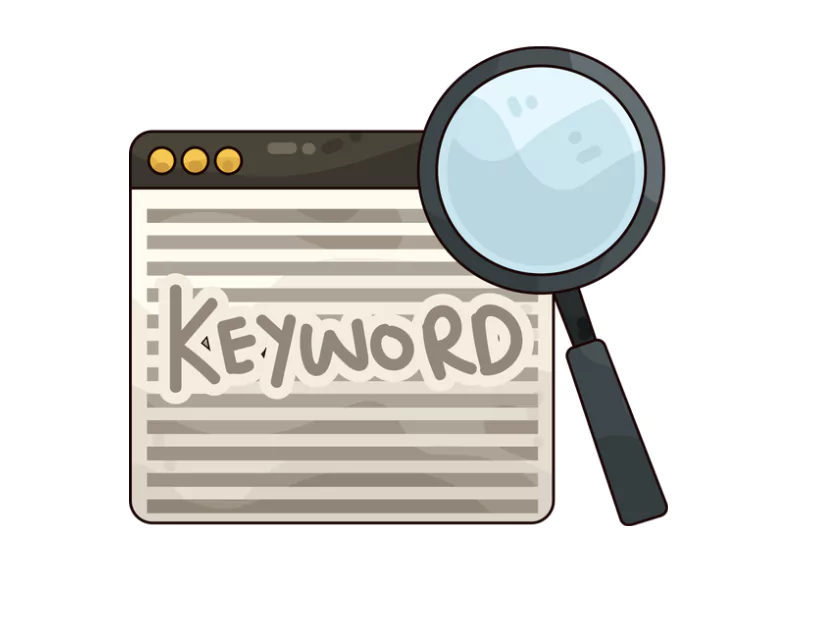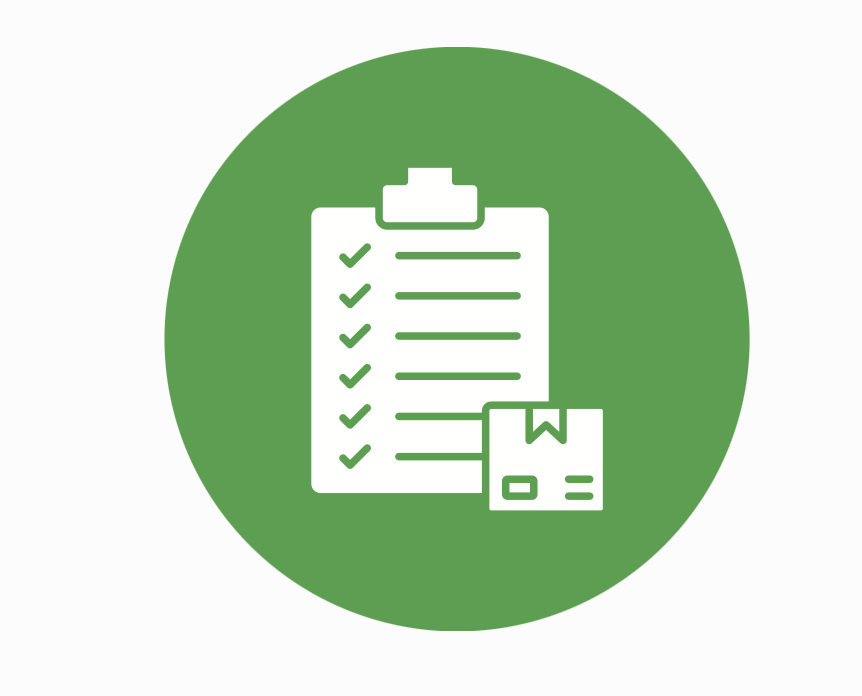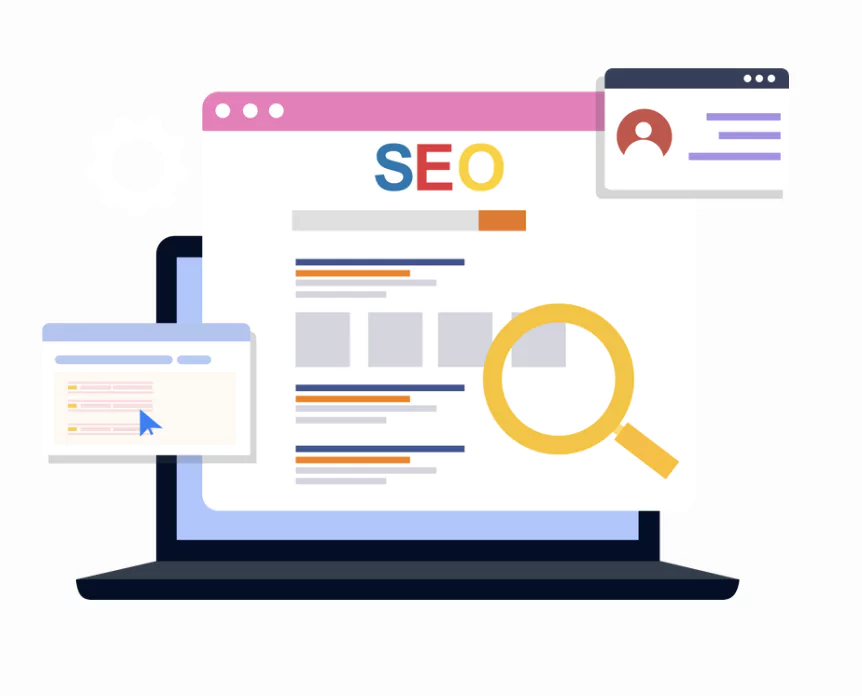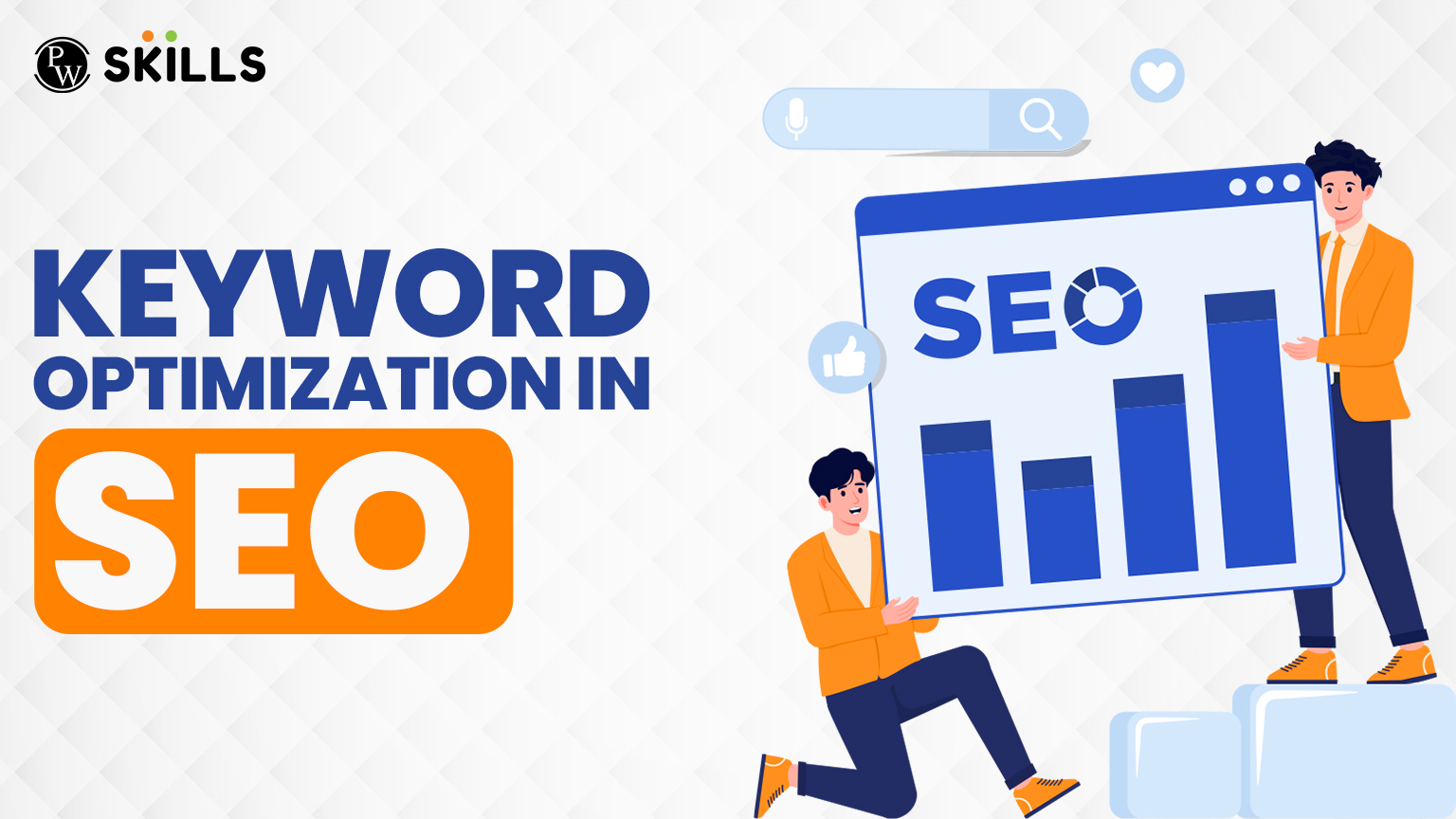Keyword Optimization is one of the most basic processes in SEO because its aim is to provide the most relevant information to the users. Keyword selection plays a crucial role in this area as the keywords must be clear to search engine algorithms and the search engine must know what type of content your website has and on which query should it be shown on top.
Before we talk about what is keyword optimization in SEO, it is important that we understand what a keyword is. So, in this blog, we will talk about what is a keyword, what is keyword optimization, why is it important and the effective steps to optimize keywords.
What Is A Keyword?
A keyword is a phrase or word which describes the content of your webpage. Keywords are used in various contexts, like Search Engine Optimization (SEO), advertising and content categorization. Keywords are very important if you want to rank and drive traffic.

For example, if you have an e-commerce website where you sell shoes, then you can target keywords like ‘best running shoes’, ‘running shoes’ or ‘best shoes’ to clearly describe the main theme of your website, it will help you, your users as well as the search engines to easily understand your content and make your website appear on top when someone searches for these queries.
What Is Keyword Optimization?
Keyword Optimization is a process of integrating high-volume keywords in your content. It is done to improve the performance of your webpage and drive targeted traffic to the website.

It is not about finding, analyzing and choosing keywords, that’s keyword research. Keyword optimization is actually about using the right keywords at the right place and in the right ways. There is always an opportunity to make your content better as SEO is a never-ending process. You can look for what your target audience wants, what they continuously search for and create content accordingly to meet their expectations.
Why Is Keyword Optimization Important?
Keyword optimization is an important aspect for successful SEO campaigns. Let’s have a look at some of the key reasons why keyword optimization is important.
1. Improves Search Engine Visibility
Who doesn’t want their website to appear in the top results on SERPs (Search Engine Result Pages)? Well, keyword optimization is an important aspect for improving your visibility on the search engine.
2. Relevance to user queries
Keywords are like the language of the search. Including relevant keywords in your content will eventually help you to connect and engage better with your target audience. It will increase the relevancy of the content your target audience sees because your website will be more receptive to the queries if you include relevant keywords.
3. Targeted Traffic
By using keyword optimization effectively, you can draw visitors to your website who are actually interested in the information, goods or services that you are offering. Proper targeting of keywords becomes important because it helps you to reach the audience with specific goals which results in higher conversion rates.
4. Competitive Advantage
Effective keyword research and mindful keyword targeting provides you a competitive edge. If you manage to find out high-volume but low-difficulty keywords, you might even outrank your rivals in search results.
5. Understanding User Intent
Understanding user intent becomes super important while targeting and narrowing down the audience. When you perform keyword research, you understand what users are looking for and what is their intent behind it, whether it is informational, commercial, navigational or transactional. If you use this information correctly, you can tailor your content and successfully create content which meets the expectations of your users.
Read More: What is Keyword Density? Is it Important for SEO?
Steps For Keyword Optimization In SEO

If you want your website to grow, rank on search engines and reach a wider audience, then you need to perform keyword optimization. Have a look at the below steps for effective keyword optimization in SEO.
- First of all, you have to conduct keyword research.
- After you have successfully chosen the best keywords, add them to your content.
- You must optimize title tags, meta descriptions, headings, alt text for images and URLs. Make sure to include your primary keyword in Title tags, meta description, URL and H1 tag (main heading of the page).
- While integrating keywords, make sure to have a balance. You must not end up adding too many keywords in one single page as it can lead to penalties from search engines.
- Even after you publish your content, make sure to regularly review and update your content with the latest information.
![]() Join Our Digital Marketing WhatsApp Channel
Join Our Digital Marketing WhatsApp Channel
How To Optimize For Keywords To Boost SEO Success?
To optimize for keywords to boost SEO success, you can follow the below guide and take a step ahead to improve your SEO rankings.
1. Group Similar Keywords
People search for the same answers in different ways, so you can group similar terms together and can target an entire group with a single page. This will help you to appear in multiple search results by adding various relevant search terms in your content. It is also known as Keyword Clustering, which means to group similar terms together.
2. Keyword Mapping
Keyword Mapping refers to giving specific keywords to different pages on your website which helps you to optimize your website’s content. Keyword Mapping is here used in the context of mapping (matching) keywords with your website’s pages. If you plan correctly about which keywords will go on which page so it will prevent you from targeting the same terms on multiple pages.
3. Create Content focusing on search intent
You must also focus on the search intent of the user and create good-quality content accordingly. Search intent is the goal or reason why the user is searching for something.
There are four types of search intent: informational, navigational, commercial, and transactional. If you know about the reason why people are searching for a particular thing, then you will eventually be able to deliver better content that fulfills their requirements.
4. Optimize Title Tags and Meta Description
A title tag is the main title or heading that appears in the search results and a meta description is a two to three line description that summarizes the content of your page.
5. Optimize HTML Headings
It is essential that search engines understand what your page is about and using HTML headings helps you with that. The title for your main page is in the H1 tag. You can subsequently use H2, H3, etc. The H1 tag must include the primary keyword and should be under 60 characters. The other headings must also include relevant keywords like some secondary keywords.
6. Create User-friendly URLs
You have to optimize URLs in such a way that they are easy to understand for both users and search engines. This helps in improving the SEO performance.
The URL must be relevant to the content that your page has, as it helps both users and search engines to understand your page’s content. You can create a good URL by keeping it simple and short. Also, don’t forget to include your primary keyword.
7. Optimize your Images
Keyword optimization is not just about written content, it also includes image SEO. Image optimization helps you to get more traffic from image search results and Google Lens results.
Rename the image using your primary keywords and focus on adding ‘alt text’ and captions for your images while uploading. Alt text is a short description of the image.
Also Read:
- What Are Branded Keywords?
- 4 Major Types Of Keywords In SEO
- Youtube SEO Keywords: How to Find the Right Keywords?
- 8 Ways to Do Best PPC Keyword Research, Key Considerations
Prepare With PW Skills Digital Marketing Course
Learn complete keyword optimization, new age ranking techniques used by Google and complete digital marketing with all in one Digital Marketing Course offered by PW Skills. This course will take you through the latest curriculum based on industry practices along with real world projects, practice exercises, and more. Delve into AI powered tutorials and concepts to build your productivity 10x at your workplace.
If you are someone who is looking to build their career in various roles in digital marketing, then this course is all you need. No matter if you are a job seeker, a working professional looking for a switch, or an entrepreneur longing for knowledge.
Looking for More?
- Get industry-led live sessions with professionals in digital marketing
- Build a fully job-optimised project portfolio which demonstrates your skills, and strengthen it with projects.
- Get opportunities for full-time jobs or freelance clients for different digital marketing tasks.
- Build freelance copywriting skills with our dedicated mentors and interactive contents
- Get personalised career assistance to prepare for interviews and land your dream job
- Get industry recognised certifications from PW Skills
- Enhance your job readiness with practical skills and expert career guidance.
Keyword Optimization FAQs
Q1. What is the difference between keyword optimization and keyword research?
Ans: Keyword optimization is the process of making changes to your content by adding relevant keywords into your content whereas keyword research is the process of finding, analysing and selecting the keywords which are to be included in the content.
Q2. What is keyword intent?
Ans: Keyword intent or search intent is the intention of the user behind searching for any query on search engines.
It is of four types: Informational, Commercial, Navigational and transactional.
Q3. How many keywords should I use per page?
Ans: Although there is no limit on the number of keywords that you can use, you must use 1 primary keyword along with two to three secondary keywords per page. You must strictly avoid keyword stuffing (overuse of keywords).
Q4. Is it possible to rank without keyword optimization?
Ans: It is very difficult to rank without keyword optimization as the competition is very high and search engines might not even understand what your content is about which will make it less likely to appear on the Search Engine Result Pages.

